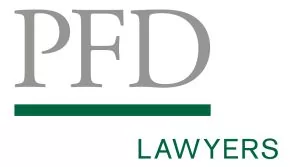Adopted on December 1, 2015, and put forward by Tourism Minister Dominique Vien, Bill 67 (hereinafter "Bill") was drafted in response to the demand for change by tourism accommodation stakeholders. It will come into effect at a date to be determined by the government and essentially aims to amend the certification process, to foster the implementation of municipal regulations with respect to urban planning and to provide a standard framework for online temporary rental service platforms.
The first noteworthy change is the addition of the term tourist to the Act respecting tourist accommodation establishments (CQLR, c. E-14.2, hereinafter the Act), which will certainly prove important since the definition diverges slightly from the standard meaning. The Act defines a tourist as a "... person who takes a leisure or business trip, or a trip to carry out remunerated work, of not less than one night nor more than one year outside the municipality where the person's place of residence is located and who uses private or commercial accommodation services." The new explanation clearly intends to widen the scope of application of accommodation standards.
The term is all the more significant with respect to the obligation to obtain certification to operate a tourist accommodation establishment under the Act. These certificates must be displayed at the entrance of establishments on coloured panels to indicate information such as star classification, for example.
The definition of a tourist accommodation is provided in the Regulation respecting tourist accommodation establishments (CQLR, c E-14.2, r 1). It has been modified to include "...any establishment operated by a person who offers for rent to tourists, in return for payment, at least one accommodation unit for periods not exceeding 31 days." Both definitions indicate the far-reaching extent of the obligation to obtain certification.
Bill 67 also includes an amendment that will undoubtedly impact municipalities: when the operator of a tourist accommodation establishment wants to obtain or modify a certificate, the government must advise the municipality to ensure that the intended use is compliant with municipal urban planning by-laws. Prior to this amendment, operators applied directly to the municipality for their certificates. The Bill therefore creates a direct information channel between urban planning departments and the Ministère du Tourisme.
If the intended use is not in conformity with municipal planning by-laws, the municipality must inform the Ministère within 45 days of the notice. It should be noted that the Bill seems to create a presumption of conformity should a municipality fail to respond in the alloted delay. Only the court's interpretation of the Bill on this issue will clarify the situation. When a municipality declines an application, the provincial government will refuse to issue the certificate.
Finally, the Bill provides for greater power to investigate and inspect illegal tourist accommodation operations and sets out heftier fines. An establishment that does not comply with the obligation to obtain certification could face fines of $2 500 to $25 000 for an individual and up to $50 000 for a business. The amounts double and triple in the event of repeated offences. The Bill also creates a presumption of offence against administrators and officers of businesses that violate its provisions. Lastly, certain municipalities may want to amend their legal definitions to dovetail with those specified in the Bill in order to broaden and optimize the control of tourist accommodations.
Though the Bill has not yet come into effect, do not hesitate to contact one of our legal experts for more information on the topic.
About Mackrell International - Canada - Prévost Fortin D'Aoust is a Quebec based business law firm with offices in Montreal, Saint-Jérôme, Boisbriand, Sainte-Agathe-des-Monts and Laval, and a member of Mackrell International. Mackrell International - Canada is comprised of four independent law firms in Alberta, British Columbia, Ontario and Quebec. Each firm is regionally based and well-connected in our communities, an advantage shared with our clients. With close relations amongst our Canadian member firms, we are committed to working with clients who have legal needs in multiple jurisdictions within Canada.
This article is intended to be an overview and is for informational purposes only.

